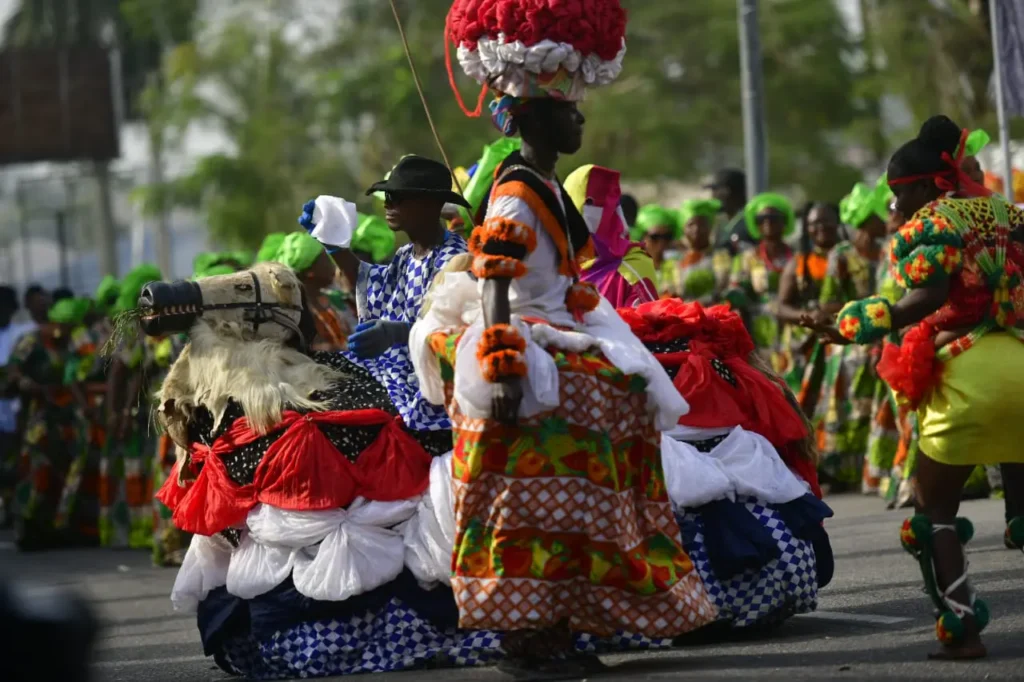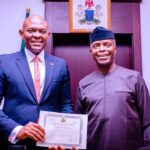On October 1, 1960, Nigeria raised its green-and-white flag for the first time, stepping into a new era as an independent nation.
Sixty-five years later, the story of Nigeria is one of resilience, complexity, and enduring hope.
Independence was a moment of optimism, a collective belief that the nation could chart its own course. Over the decades, that optimism has been tested by civil unrest, military rule, and political turbulence. Yet, Nigeria has continually emerged from its trials, shaped not only by leaders and policies but by the quiet perseverance of its people.
Join our WhatsApp ChannelFor many Nigerians, independence is both a celebration and a contemplation. Pa Samuel Oladimeji, 75, remembers the day vividly. “We sang, we danced, we dreamed,” he recalls. “We thought by now we would have solved all our problems. Life has been hard, but our hope has never died.”
That hope is reflected in everyday acts of determination. From the young entrepreneur creating opportunities in Lagos’s bustling markets to students pursuing innovation in classrooms across the country, Nigeria’s citizens continue to craft their own narratives of progress. The nation’s creative energy in music, literature, and technology underscores a spirit that refuses to be subdued.
READ ALSO: #Nigeria@65: Your Timely Guide To Nigerian Independence Day Celebration In The Diaspora
Nigeria@65: Beware of Fragile Economic Recovery, Oye Warns Govt
Yet, reflection also brings sober truths. Economic challenges, social inequalities, and insecurity remain pressing. Oil wealth has often failed to benefit the wider populace, and sections of the country still struggle with access to basic services. Independence, while a cause for pride, is a reminder that the journey toward equality and justice continues.
Still, Nigeria’s 65th anniversary is an opportunity to honour resilience. It is a chance to acknowledge that freedom is not only measured by the absence of colonial rule but by the collective will to sustain a nation, nurture its people, and dream beyond immediate challenges.
Dr. Aisha Ibrahim, a historian at Ahmadu Bello University, observes, “Independence is more than a date; it is a reflection on the values we uphold and the society we wish to build. At 65, Nigeria’s strength lies in the hope and determination of its people.”
As the green-and-white flag flutters across cities and villages, it symbolizes both a long journey and the promise of the road ahead. Nigeria at 65 is a nation of contrasts of trials and triumphs, struggles and creativity, challenges and aspirations but above all, of a people who endure and envision a better future.
In reflecting on 65 years, Nigeria is reminded that independence is not a destination, but a continuous journey a story still unfolding, written by the courage, dreams, and resilience of its people.
Amanze Chinonye is a Staff Correspondent at Prime Business Africa, a rising star in the literary world, weaving captivating stories that transport readers to the vibrant landscapes of Nigeria and the rest of Africa. With a unique voice that blends with the newspaper's tradition and style, Chinonye's writing is a masterful exploration of the human condition, delving into themes of identity, culture, and social justice. Through her words, Chinonye paints vivid portraits of everyday African life, from the bustling markets of Nigeria's Lagos to the quiet villages of South Africa's countryside . With a keen eye for detail and a deep understanding of the complexities of Nigerian society, Chinonye's writing is both a testament to the country's rich cultural heritage and a powerful call to action for a brighter future. As a writer, Chinonye is a true storyteller, using her dexterity to educate, inspire, and uplift readers around the world.













